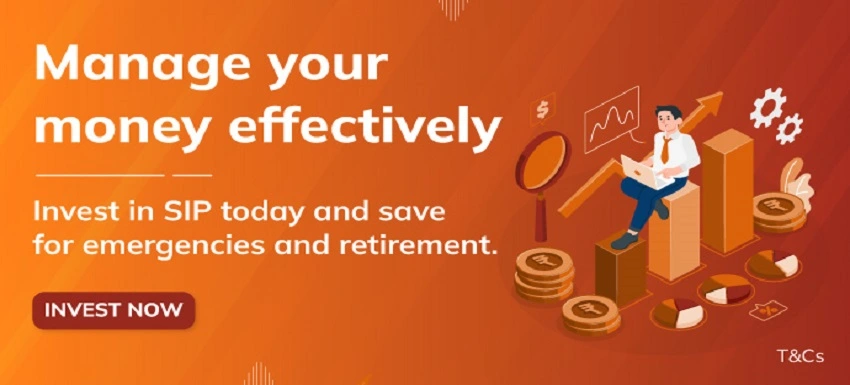THE
ORANGE
HUB
What are the Pros and Cons of Investing in Mutual Funds in a Minor’s Name?

Mutual Funds are investments that pool money from various investors for purchasing a diverse portfolio of stocks, bonds or other securities. This diversification reduces risk, making Mutual Funds a suitable investment option for long-term goals such as your child’s education or marriage. There are different types of Mutual Funds. These include Equity Funds, Debt Funds and Hybrid Funds each with different risk and return profiles.
When it comes to setting aside funds for your child’s future, investing in his/ her name can be a wise decision. However, this approach comes with its own set of advantages and disadvantages. In this blog, we will explore the pros and cons of investing in Mutual Funds in a minor's name.
Pros of investing in Mutual Funds in a minor's name
Mutual Fund investments in a minor's name offer unique advantages that can be important for planning your child's future. They allow you to save money for specific goals and help in teaching financial discipline and awareness to children from an early age. This approach also tends to be more tax efficient.
Large-Cap Funds:
The funds containing stocks that are the among the highest in terms of market capitalisation (Large Cap Stocks) are Large-Cap Funds. They are characterised by their large size, high financial strength, wide public ownership and market leadership in the industry. Investors perceive these stocks as less risky, leading to higher valuations.
Mid-Cap Funds:
The stocks that rank immediately after the Large-Cap stocks in terms of market capitalisation are Mid-Cap stocks and the funds that invest in them are called Mid-Cap Funds. These are usually smaller companies (by revenues and Market Cap) compared to Large-Cap companies. However, Mid-Cap stocks have higher growth and return potential. They might become Large-Cap stocks in the future, giving potentially higher returns in the long term.
Small-Cap Funds:
Small-Cap Funds are those funds that invest in the stocks of smaller companies, smaller by market capitalisation and possibly revenues. Small-Cap Funds are the riskiest types of Equity Funds. However, they can potentially deliver higher returns than Mid-Cap and Large-Cap funds in the long run. They are unsuitable for short-term investments because they can be volatile and illiquid. Most Small-Cap companies are largely owned by promoter(s) and the percentage of free-float is much less than Mid-Cap and Large-Cap shares.
Cons of investing in Mutual Funds in a minor's name
Investing in Mutual Funds in a minor’s name can be a strategic move for securing the child's future but it is also important to be aware of the potential downsides of this approach. These include:
Transfer of control at maturity
The control over the investment is transferred to the child when he/ she attains the age of majority (18 years). This can have a negative impact as the young adult might not have the experience required to manage the funds wisely.
Operational hassles
When the child turns 18, the Mutual Fund account is frozen until the transition to a major account is completed. This process involves additional paperwork and can temporarily halt the ability to make new investments or withdrawals.
Lack of joint holding facility
In a minor’s Mutual Fund portfolio, joint holding is not allowed. The account must be solely in the minor’s name and should be managed by the parent or the guardian. This limitation can be a drawback for those who prefer Joint Accounts for additional flexibility and control.
Things you need to know before investing
Investing in Mutual Funds on behalf of a minor is a thoughtful way to plan his/ her future. However, it is important to approach this with the right knowledge and strategy. Understanding the importance of documentation, adopting a long-term perspective, assessing risks appropriately and regularly reviewing the investments are important aspects to consider before investing in a minor’s name.
Documentation
To open a Mutual Fund account in a child's name, you will need valid proof of the child's age and relationship with the parent/ guardian. For this, the birth certificate or passport is enough. This documentation is necessary for the initial investment and is not needed for subsequent investments made in the same fund house.
Long-term perspective
Investing in Mutual Funds for a minor should be viewed with a long-term perspective. Mutual Funds often perform best over extended periods, allowing the power of compounding to work effectively.
Risk assessment
Like any other investment option, Mutual Funds come with a set of risks. It is essential to choose funds that align with your risk tolerance and investment goals. Diversifying across different types of funds can help reduce risks.
Monitoring and review
Review the fund’s performance regularly and ensure it aligns with the set objectives. As your child grows, his/ her needs and goals might change, requiring adjustments in the investment strategy.
Conclusion
Investing in Mutual Funds in a minor’s name can be a strategic move for securing your child’s financial future. However, it requires careful consideration of pros and cons along with detailed planning and monitoring. Always remember that what works for one may not necessarily work for the other. Therefore, it is crucial to make decisions based on your unique circumstances and after conducting thorough research.
Scroll to top











